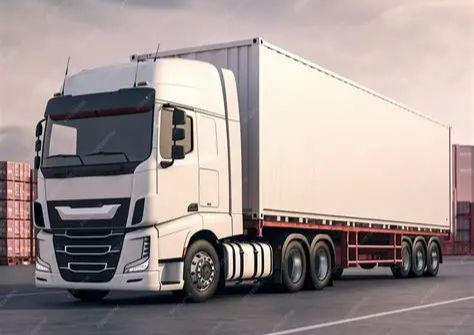How to Secure High-Value Cargo and Prevent Theft
- Sep 23, 2025
- 2 min read
Transporting high-value cargo is a critical responsibility for cargo trucking companies. Whether it's electronics, pharmaceuticals, or luxury goods, these shipments are prime targets for theft and damage. With cargo theft incidents rising - costing the U.S. economy over $30 billion annually - it's essential for trucking businesses to implement robust security measures and ensure proper insurance coverage.

1. Understand the Risks of High-Value Cargo
High-value cargo includes shipments worth over $100,000 or items with irreplaceable value like antiques, aerospace parts, or sensitive pharmaceuticals. These loads are vulnerable to:
Straight theft from warehouses or truck stops
Strategic theft involving fake pickups or social engineering
Hijackings during transit
Inside jobs involving unethical drivers
2. Invest in Advanced Security Technology
Modern security tools can significantly reduce theft risk:
GPS tracking & geofencing for real-time location monitoring
Electronic Logging Devices (ELDs) to track driver behavior and hours
Smart locks and seals with tamper alerts and remote access
Dash cameras for visual evidence and deterrence
3. Train Drivers and Staff on Security Protocols
Human error is a major vulnerability. Training should include:
Threat recognition and emergency response
Secure parking practices
Communication protocols and incident reporting
Confidentiality about cargo contents
Encourage open communication between drivers and dispatchers to report suspicious activity promptly.
4. Plan Routes Strategically
Avoid high-risk areas known for cargo theft. Use route optimization software to:
Identify secure rest stops
Monitor deviations from planned routes
Adjust for weather and traffic conditions
Team driving can also reduce risk by ensuring cargo is never left unattended.
5. Secure the Right Insurance Coverage
Insurance is your financial safety net. The FMCSA mandates cargo insurance for interstate carriers, with minimums starting at $750,000 for general freight. However, high-value loads often require:
Gap insurance for uncovered losses
Wexford Insurance specializes in helping cargo trucking companies secure comprehensive insurance tailored to their operations. Whether you're an owner-operator or managing a fleet, we ensure you meet FMCSA requirements and protect your business from costly claims.
Final Thoughts
Securing high-value cargo is not just about locks and alarms—it's about building a culture of vigilance, using smart technology, and having the right insurance partner. With theft tactics evolving, cargo trucking companies must stay ahead with proactive strategies.
Contact Wexford Insurance to explore coverage options for high-value freight, new ventures, and fleet operations.




